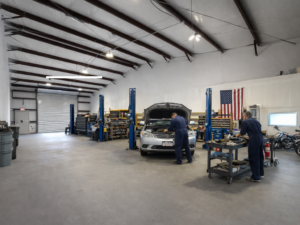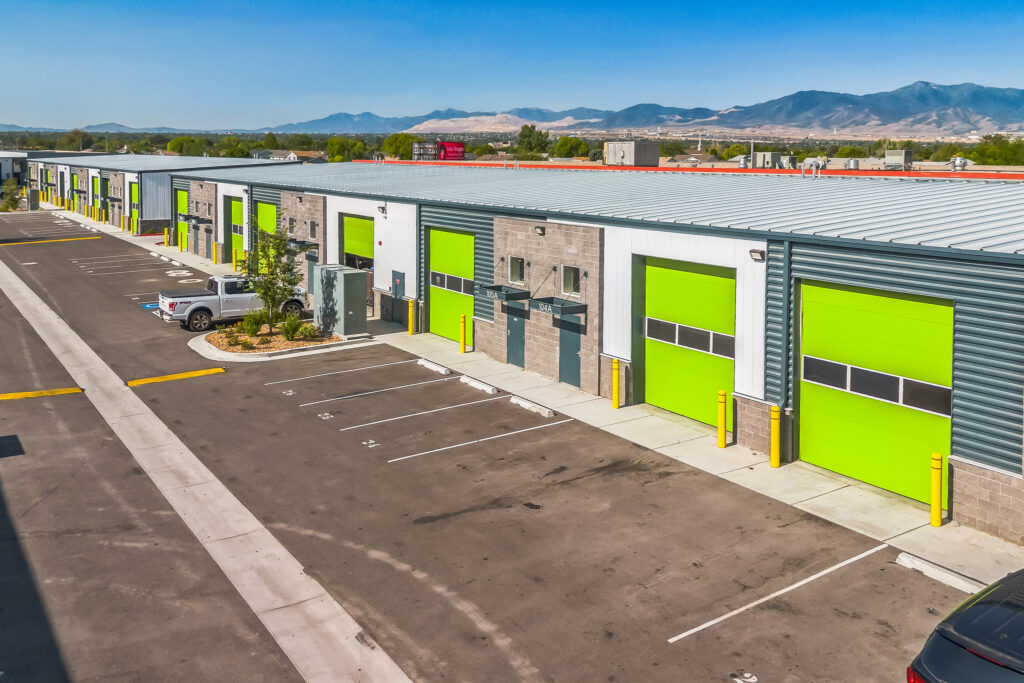No matter how careful you are on the job, accidents happen. In construction and the trades, even a simple slip or equipment mishap can lead to serious injuries. When that happens, both the worker and the business need protection. That’s where worker’s compensation insurance comes in.
For contractors, worker’s comp isn’t just another piece of red tape—it’s a safeguard that protects your crew and your company. In this post, we’ll break down what worker’s compensation insurance is, what it covers, when contractors are required to carry it, and why it’s one of the most important policies for anyone working in the trades.
What Is Worker’s Compensation Insurance?
Worker’s compensation insurance—often called “worker’s comp”—is a type of insurance that provides financial protection when employees are injured or become ill because of their job. It helps cover medical bills, lost wages during recovery, and rehabilitation costs, so injured workers don’t have to carry the burden alone.
For employers, worker’s comp also provides critical legal protection. In most cases, employees who receive benefits through worker’s comp cannot sue their employer for workplace injuries. This makes it a win-win: workers get the care they need, and businesses are shielded from costly lawsuits.
Nearly every state requires worker’s compensation insurance once you hire employees—even if it’s just one. The specifics vary by location, but for contractors in high-risk industries like construction, having coverage is not just smart—it’s often the law.
What Does Worker’s Compensation Insurance Cover?
Worker’s compensation insurance is designed to protect both workers and employers when job-related injuries or illnesses occur. For contractors, where the job often involves heavy equipment, hazardous materials, and unpredictable environments, this coverage is especially critical. While the specifics can vary by state and policy, most worker’s comp plans cover the essentials: medical costs, lost wages, rehabilitation, and in severe cases, even death benefits. Beyond protecting workers, it also provides a crucial layer of legal protection for employers.
Here’s a closer look at what’s typically included:
Medical Expenses
Worker’s comp pays for the cost of treating injuries or illnesses that happen on the job. This can include doctor visits, emergency room treatment, surgeries, prescription medications, and follow-up care. In some states, it may even cover travel costs for medical appointments.
- Example: An employee falls from a ladder and breaks an arm. Worker’s comp covers the ER visit, X-rays, follow-up appointments, and medication needed for recovery.
Lost Wages
If an employee can’t work while recovering, worker’s comp provides partial wage replacement. This helps the worker continue to pay bills and support their family while they heal. The exact percentage of wages covered varies by state.
- Example: A worker injured by a power tool needs six weeks off to recover. Worker’s comp provides a percentage of their normal pay during that time.
Rehabilitation and Ongoing Care
Not all injuries are resolved with a single hospital visit. Some require physical therapy, vocational rehabilitation, or long-term medical support. Worker’s comp helps cover these costs so employees can return to work as safely and quickly as possible.
- Example: An employee injures their back lifting heavy materials. Worker’s comp pays for months of physical therapy to restore mobility and reduce pain.
Death Benefits
In tragic cases where a workplace injury or illness results in death, worker’s comp provides financial support to the employee’s family. This typically includes funeral expenses and ongoing payments to help dependents adjust to the loss of income.
Legal Protection for Employers
Worker’s comp doesn’t just support employees—it also shields employers. In most cases, when workers accept benefits, they waive the right to sue their employer for negligence. That means businesses are protected from expensive lawsuits that could otherwise be financially devastating.
In short, worker’s compensation insurance is about balance and protection. For workers, it provides vital financial and medical support during some of the hardest moments of their lives. For employers, it offers peace of mind, ensuring that one accident won’t spiral into an unmanageable financial or legal crisis. It’s not just a legal requirement in most states—it’s a cornerstone of responsible business practice in high-risk industries like construction and the trades.
What’s Not Covered by Worker’s Comp?
While worker’s compensation insurance offers broad protection, it doesn’t cover every situation. Knowing the limits of your policy is just as important as knowing what it includes. Many contractors assume “any injury on the job is covered,” but that’s not always the case. Worker’s comp is designed for legitimate, work-related accidents—not every possible circumstance. By understanding the exclusions, contractors can avoid surprises and make sure workers know what is and isn’t protected.
Here are the most common exclusions:
Injuries Outside of Work
Worker’s comp only applies to injuries or illnesses that occur as a direct result of employment. If an employee is hurt at home or while doing non-work activities, it won’t be covered.
- Example: A crew member sprains their ankle playing basketball on the weekend. Because it didn’t happen on the job, it’s not eligible for worker’s comp benefits.
Injuries Caused by Intoxication or Misconduct
If an employee is under the influence of drugs or alcohol at the time of injury, coverage will usually be denied. Similarly, injuries caused by fighting, horseplay, or intentional self-harm are excluded.
- Example: A worker shows up intoxicated and gets injured operating equipment. The claim is denied because of misconduct.
Independent Contractors
In most states, independent contractors and 1099 workers are not covered under an employer’s worker’s comp policy. Each contractor is responsible for their own coverage unless the hiring company explicitly provides it.
- Example: You hire a subcontractor to handle electrical work. If they’re injured, your worker’s comp likely doesn’t cover them unless specifically stated in your policy.
Certain Health Conditions
Worker’s comp usually doesn’t cover pre-existing conditions unless they are directly aggravated by work. Mental health conditions may also be excluded unless they can be clearly tied to workplace factors, which varies by state.
- Example: A worker with chronic back issues can’t claim benefits unless the job directly worsens the condition in a medically verifiable way.
Non-Work Travel or Commute
Generally, injuries sustained while commuting to or from work are not covered. However, if the travel is job-related—such as driving between job sites or delivering materials—it may be included.
- Example: A technician injured in a car accident while driving between client locations may be covered, while an accident during their morning commute typically is not.
Worker’s comp is a powerful safety net, but it’s not unlimited. These exclusions underline the importance of both safety policies and clear communication with workers. Employers should make sure their crews understand what qualifies for worker’s comp and what doesn’t. Setting the right expectations helps prevent frustration and ensures everyone knows where coverage begins and ends.
Why It’s Important for Contractors
In the trades, accidents aren’t just possible—they’re a reality. Construction sites, workshops, and even residential jobs all come with risks that office workers rarely face. That’s why worker’s compensation insurance is so important for contractors: it protects both your crew and your business when something goes wrong.
High-Risk Industry
Construction and contracting consistently rank among the most dangerous industries. Workers face hazards like falls from ladders, power tool mishaps, electrical shocks, and heavy equipment accidents. Even when following strict safety practices, accidents can still happen. Worker’s comp ensures your team has access to medical care and financial support when they need it most, helping them recover faster and return to work.
Protects Your Business from Lawsuits
Without worker’s comp, an injured employee may turn to legal action to cover medical bills and lost wages. A single lawsuit can cost a contractor tens of thousands—or even hundreds of thousands—of dollars. Worker’s comp provides a structured system for handling claims, giving employees the care they need while protecting your business from unpredictable legal costs.
Builds Trust with Employees
Carrying worker’s comp shows your crew that you value their safety and are prepared to support them if something goes wrong. This builds loyalty and trust, which can be hard to come by in industries where turnover is high. Workers are more likely to stay with contractors who treat them fairly and provide a safety net for their well-being.
Required for Many Contracts
For contractors looking to grow their business, worker’s comp is often non-negotiable. Many government projects, corporate clients, and larger general contractors require proof of coverage before signing a contract. Without it, you may be excluded from lucrative opportunities and limited to smaller-scale work.
Protects Your Reputation
In construction and the trades, reputation is everything. If you operate without worker’s comp insurance and an employee gets hurt, word spreads quickly—and it can harm your credibility with both workers and clients. Carrying worker’s compensation insurance demonstrates professionalism and responsibility, reinforcing your standing as a reliable contractor.
At the end of the day, worker’s compensation insurance is about more than compliance—it’s about protecting the people who make your business possible. For contractors, it’s one of the most important investments you can make in both your crew’s safety and your business’s long-term success.
When Do Contractors Need Worker’s Compensation Insurance?
One of the most common questions contractors have is: “When am I legally required to carry worker’s compensation insurance?” The answer depends on your state laws and the structure of your business, but in most cases, the requirement kicks in as soon as you hire your first employee.
State-by-State Rules
Every state has its own worker’s comp requirements. Some states mandate coverage even for businesses with a single employee, while others set thresholds at two, three, or more employees. A handful of states run their own worker’s comp programs, requiring contractors to buy through state funds instead of private insurers.
Employees vs. Independent Contractors
In general, worker’s comp only covers direct employees, not independent contractors or 1099 workers. However, the line isn’t always clear. If you hire subcontractors who don’t carry their own worker’s comp, you could still be held responsible for providing coverage depending on your state’s rules. That’s why it’s critical to verify subcontractors’ insurance before starting a project.
Business Size and Growth
Even small contractors may need coverage sooner than expected. Hiring just one part-time employee, apprentice, or seasonal helper could trigger the requirement. As your business grows, failing to secure coverage can result in fines, penalties, or being barred from bidding on certain jobs.
Contract Requirements
Beyond state laws, many clients and general contractors require proof of worker’s comp before you can step on a job site. This applies even if you technically aren’t required by law. Carrying coverage gives you a competitive edge and ensures you can take on a wider range of projects.
For contractors, the safest approach is to check your state’s requirements and assume you’ll need coverage as soon as you bring on help. Even if you’re not legally required, carrying worker’s compensation insurance is often the smarter move—it protects your crew, keeps you compliant with contracts, and shields your business from unexpected financial risks.
How to Get Worker’s Comp Insurance
Securing worker’s compensation insurance doesn’t have to be complicated, but it’s important to approach it carefully to make sure you’re fully covered and compliant. Here are the key steps contractors should follow:
Check State Requirements
Because worker’s comp rules vary widely, your first step should be reviewing your state’s laws. Some states require coverage for just one employee, while others set higher thresholds. A few even operate their own worker’s comp programs that businesses must buy into directly.
Work with a Broker or Insurance Provider
You can purchase worker’s comp directly from an insurance company, but many contractors prefer working with a broker. A broker can compare multiple options, explain the fine print, and make sure your policy fits both your crew size and your line of work.
Assess Payroll and Job Risks
Your premiums are based in part on payroll size and the risk level of the work being done. A roofing crew will carry higher rates than an office-based contractor, for example. Being accurate with your payroll estimates ensures you get fair pricing and avoid penalties later.
Keep Records of Subcontractors
If you use subcontractors, make sure to collect proof of their worker’s comp coverage. If they don’t have it, you may be responsible for covering them under your own policy. Good recordkeeping can protect you from unexpected liability.
Stay Compliant with Reporting
Once you have coverage, you’ll need to maintain proper documentation, file payroll reports, and update your insurer if your workforce changes. Staying compliant keeps your policy valid and avoids fines or coverage gaps.
Review and Update Regularly
As your business grows, your needs will change. Hiring new workers, taking on bigger contracts, or expanding into riskier jobs all mean your policy should be updated. Reviewing your coverage annually is a good way to stay protected.
Getting worker’s compensation insurance isn’t just about following the law—it’s about running a professional, trustworthy business. With the right policy in place, you can protect your team, meet contract requirements, and focus on building your reputation as a reliable contractor.
Protection That Works Both Ways
Worker’s compensation insurance isn’t just another box to check—it’s one of the most important protections for contractors. It ensures that workers who get injured on the job receive the medical care and financial support they need, while also protecting businesses from lawsuits and unexpected costs. For contractors working in high-risk industries, this coverage is more than a legal requirement—it’s the foundation of a safe, professional, and trustworthy operation.
At the end of the day, worker’s compensation insurance protects both sides of the job. It gives employees peace of mind knowing they’ll be cared for if something goes wrong, and it gives contractors the confidence to grow without worrying that one accident could shut everything down.
At WorkBay, we know that running a contracting business means balancing risk and opportunity every day. That’s why we’ve built spaces designed for trades—secure, durable, and ready for hands-on work. Pairing the right coverage with the right space ensures you can focus on building your business with confidence.
See available locations, schedule a tour, or talk to our team today.





